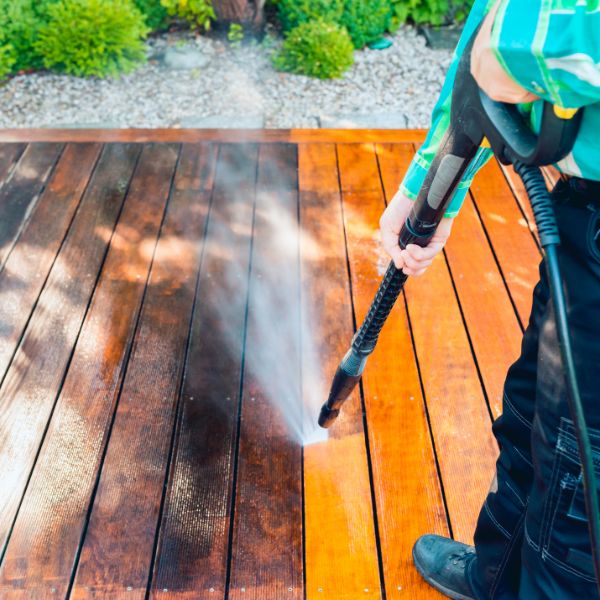Best Time to Pressure Clean or Soft Wash Your Central Coast Property
Pressure and soft washing aren’t just about fixing a dirty surface—they’re most effective when done at the right time. Knowing when to clean can make a big difference in how long your results last, how well your surfaces are protected, and how easily contaminants can be removed.
Factors like local climate, surface materials, shade exposure, and the type of build-up all play a role in determining the best time to book a clean. In coastal areas like the Central Coast, where humidity, salt air, and organic debris are common, timing is especially important.
Glason High Pressure Cleaning offers expert pressure cleaning and soft washing services year-round, with tailored advice based on the season, property type, and contamination level. Whether you’re preparing for spring, managing winter build-up, or recovering from storm debris, we’ll recommend the best time and method to get your property looking its best.
Why Timing Matters for Exterior Cleaning
It’s easy to assume that pressure cleaning can be done at any time—but the truth is, choosing the right time of year can lead to better results, longer-lasting cleanliness, and fewer surface issues in the future.
Here’s why timing matters:
- Surface Conditions Vary Seasonally
In cooler, wetter months, surfaces stay damp longer—ideal for mould and lichen growth. In warmer months, dirt and dust accumulate faster, especially on driveways and walls.
- Different Contaminants Thrive in Different Seasons
Mould and algae are more active in shaded, damp areas during winter. In summer, grime, pollen, and salt build-up become more noticeable.
- Prevention Is Better Than Cure
Cleaning before contaminants take hold (e.g. before winter or after heavy leaf fall) helps maintain surface integrity and reduces the risk of long-term damage.
- Clean Surfaces Last Longer
Dirt, salt, and organic material break down paint, timber, and concrete over time. Seasonal maintenance extends the life of these surfaces and reduces the need for premature repairs.
- It’s Not Just About Looks—It’s About Safety
Slippery contaminants like algae and grime become safety hazards, especially on paths and driveways. Seasonal pressure cleaning helps prevent slips, falls, and liability risks.
Understanding how the time of year affects both the surface and the contaminant helps you make better choices about when to clean—and how.
Coastal Conditions and the Need for Regular Cleaning
Living along the coast has its perks—but it also means your property faces unique environmental challenges that accelerate surface wear and contamination. Properties on the Central Coast are exposed to a mix of salt air, sea spray, humidity, and organic debris—all of which contribute to faster build-up and surface degradation.
Here’s why coastal properties need more frequent cleaning:
- Salt Air and Sea Spray:
Salt deposits settle on walls, windows, and roofs, corroding paint, metal fixtures, and concrete over time if not removed regularly.
- Humidity and Moisture:
High humidity creates the perfect environment for mould, algae, and lichen to thrive—especially on shaded surfaces like paths, fences, and roofs.
- Organic Debris and Tree Cover:
Leaves, twigs, and pollen from surrounding vegetation trap moisture, clog gutters, and promote grime build-up—particularly during autumn and winter.
- Storm Debris and Runoff:
After heavy rain or storms, driveways and courtyards collect silt, mud, and organic residue that can stain or erode surfaces if not promptly removed.
For coastal homes and commercial properties, pressure cleaning isn’t just occasional upkeep—it’s part of essential property care. Regular maintenance prevents early deterioration, improves safety, and helps keep your exterior surfaces looking sharp year-round.
"Trusted by Central Coast locals for 30+ years".
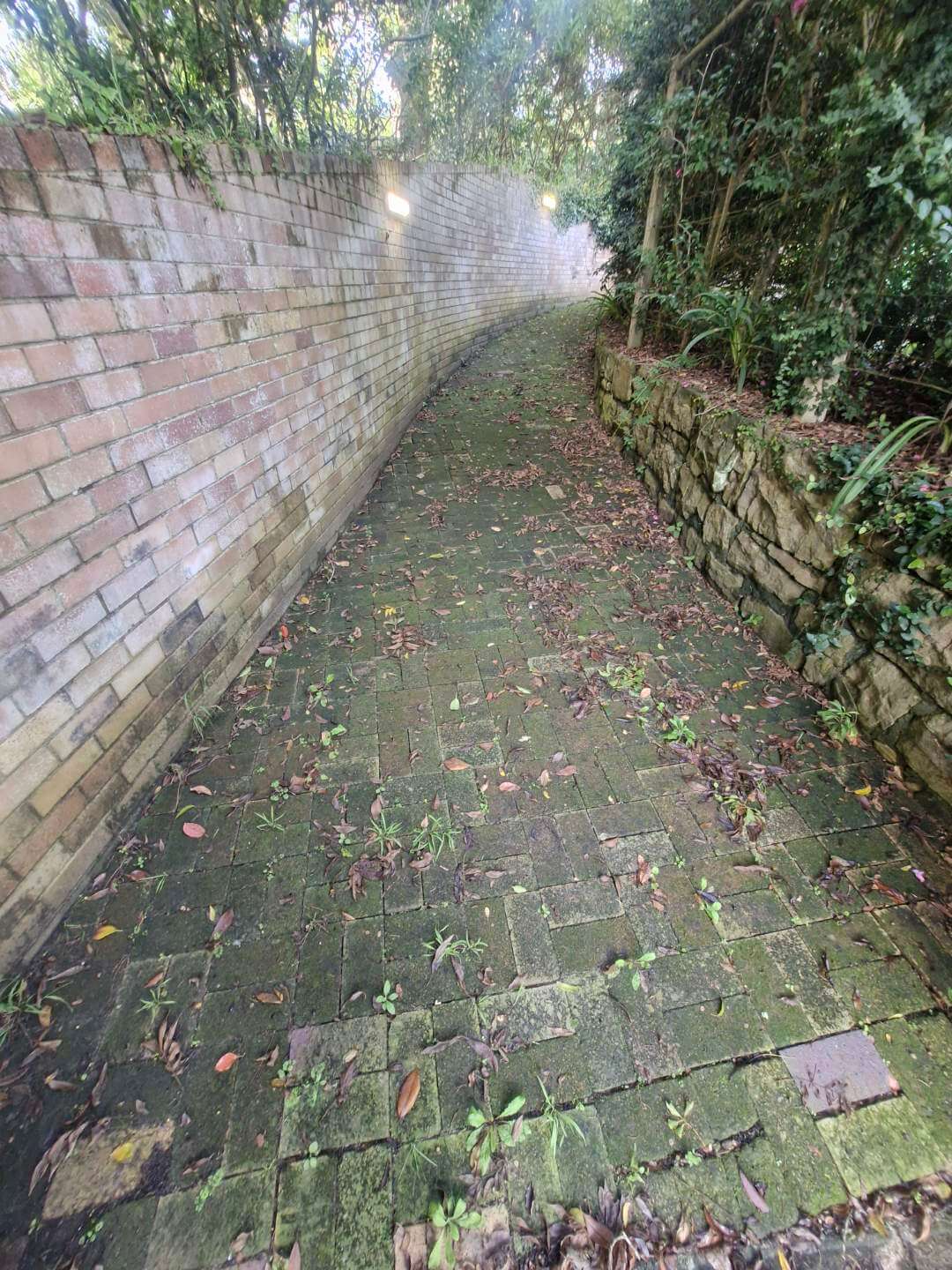
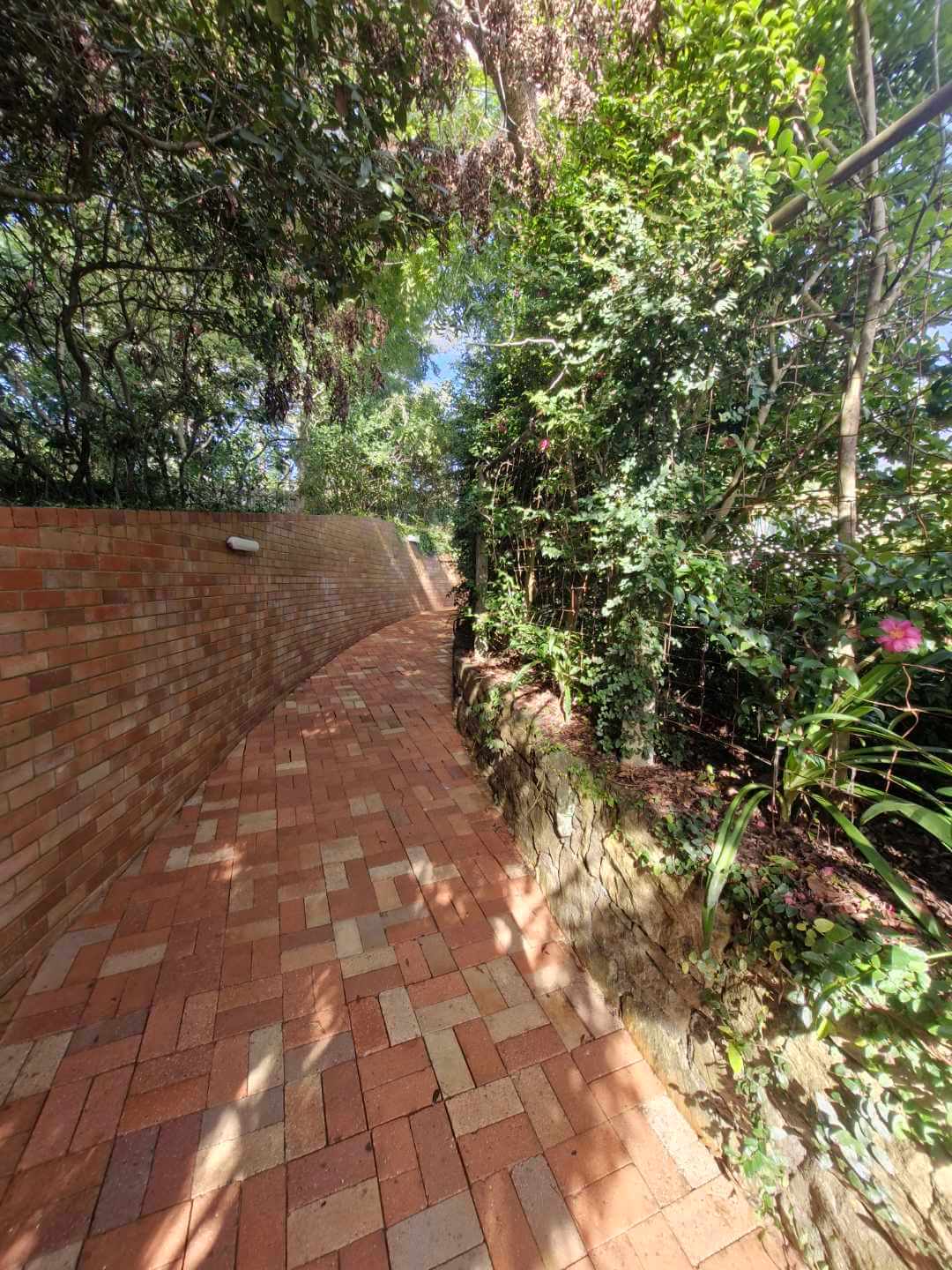
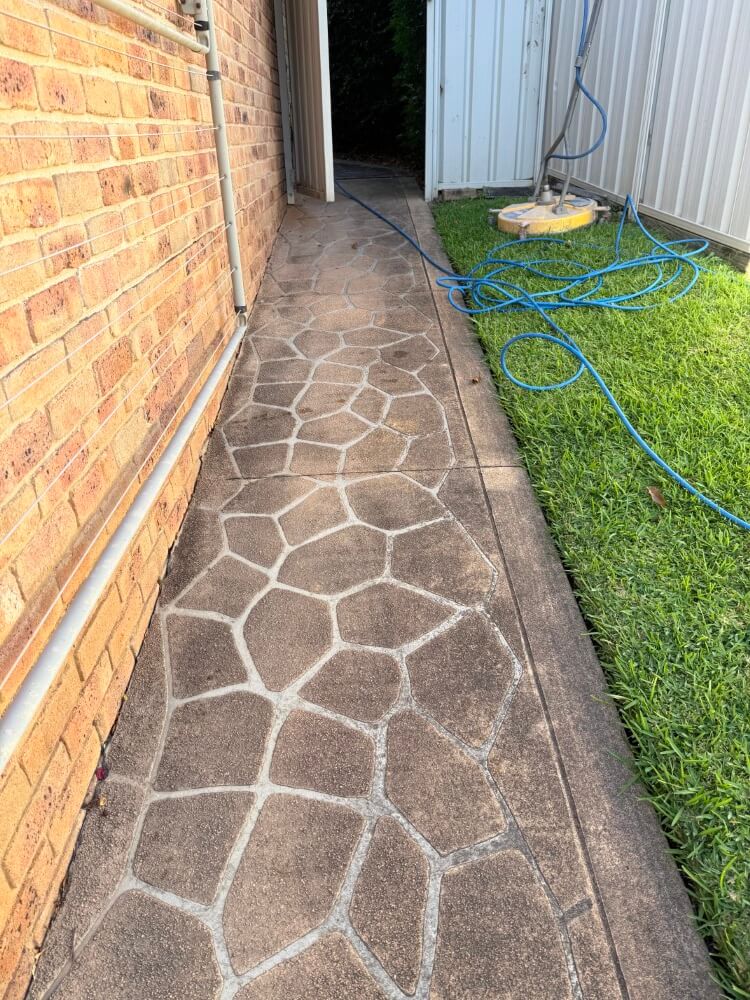
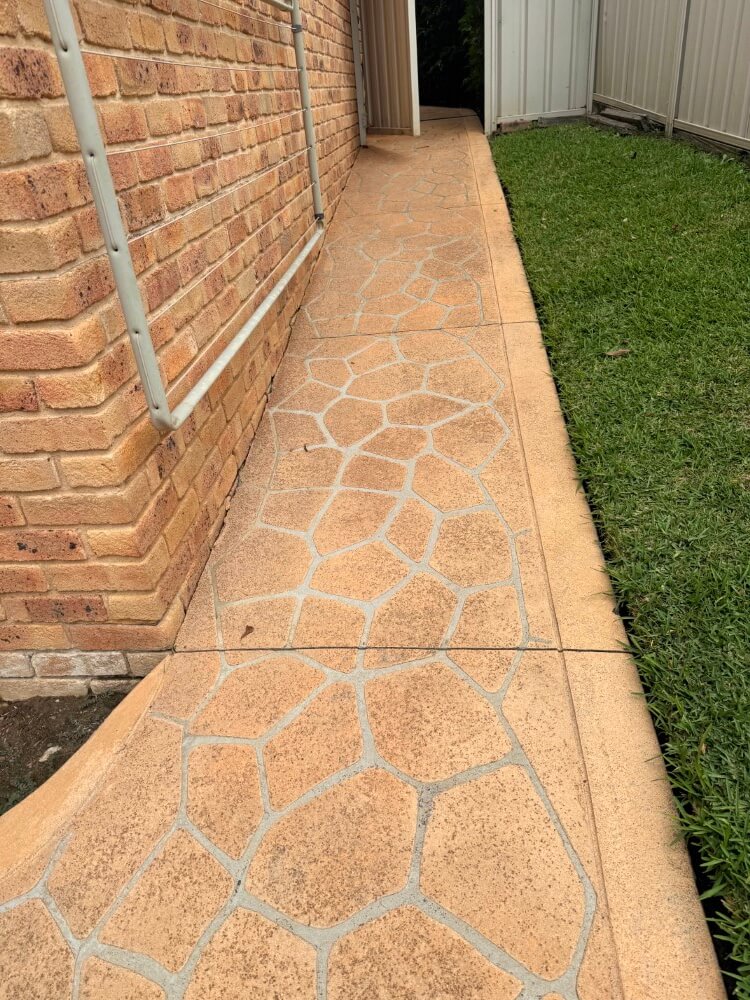

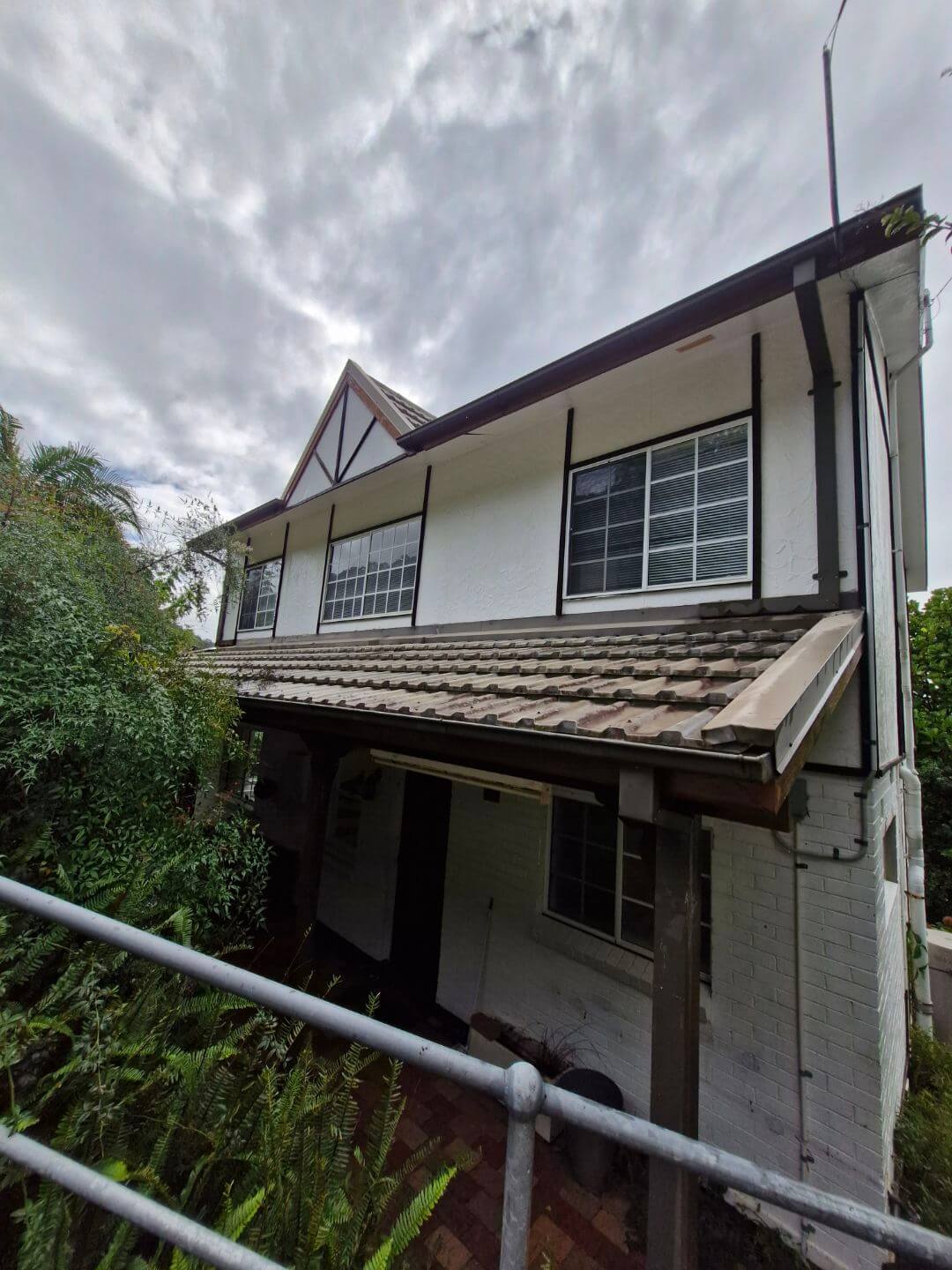
Is Winter a Good Time to Pressure Clean?
Absolutely—winter is one of the most effective times of year to pressure clean or soft wash your property, especially in coastal areas like the Central Coast. While many people assume it’s better to wait until spring or summer, winter offers several distinct advantages for exterior cleaning.
Why Winter Works:
- Prevents Cold-Season Contaminants from Taking Hold:
Mould, algae, and lichen thrive in damp, shaded areas during winter. Cleaning early in the season—or mid-winter if growth is visible—stops these contaminants from embedding deeper into surfaces.
- Surfaces Are Often Less Busy:
Outdoor areas like decks, courtyards, and driveways are typically used less in winter, making it a great time to clean without disruption to daily life.
- Ideal for Preparing Surfaces for Sealing or Painting:
If you’re planning to reseal concrete or repaint in spring, winter cleaning ensures a properly prepped surface free of grime, salt, and organic build-up.
- Easier to Book and Schedule:
Winter tends to be a quieter season for exterior work, meaning shorter wait times and more flexibility for your preferred date.
- Prepares Your Property for Spring:
A winter clean removes slippery moss and debris, making surfaces safer during wet conditions and ready for outdoor use when the warmer weather returns.
Winter cleaning is about getting ahead of the problem—not waiting until the damage has already set in. With the right technique and timing, you can protect your surfaces and enjoy cleaner results that last into the next season.
Spring & Summer Cleaning – When It’s All About Kerb Appeal
Spring and summer are the most popular seasons for pressure cleaning—and for good reason. As the weather warms up, outdoor spaces see more use, properties go on the market, and homeowners focus on freshening up their surroundings.
Why Book in the Warmer Months:
- Perfect for Home Sale Preparation:
If you’re thinking of selling, a clean driveway, path, fence, and façade can dramatically improve first impressions and boost perceived property value.
- Pre-Holiday & Entertaining Clean-Ups:
With guests visiting and outdoor living in full swing, pressure cleaning your courtyard, pool area, or patio helps create a welcoming, cared-for space.
- Surfaces Are Dry and Easier to Clean:
During spring and summer, surfaces tend to dry faster, making pressure cleaning more efficient and allowing follow-up treatments (like sealing or painting) to be done sooner.
- Higher Visibility of Surface Stains:
Bright sunlight reveals surface grime, mould streaks, and lichen patches that may go unnoticed during winter. A clean-up at this time keeps everything looking sharp.
- Demand Increases—So Book Ahead:
Because many property owners wait until spring or summer to clean, it’s smart to book early to secure your preferred time slot.
Whether it’s about restoring presentation or preparing for the season ahead, spring and summer cleaning brings fresh energy to your home or business—and ensures it looks its best when it matters most.
Autumn – Clearing Organic Build-Up Before Winter Sets In
Autumn is the perfect time to get ahead of the mess that winter tends to magnify. As leaves fall and moisture levels start to rise, surfaces become more prone to organic build-up—especially in shaded or low-traffic areas.
Why Autumn Cleaning Matters:
- Prevents Moisture-Trapping Debris:
Leaves, twigs, and dirt can collect on roofs, in gutters, and across paths and driveways. When left to sit, they hold moisture against the surface and create the perfect environment for mould, lichen, and algae to grow.
- Reduces Drainage and Gutter Issues:
Clearing build-up around outdoor surfaces helps reduce water pooling and blockage, particularly ahead of rainy winter conditions.
- Protects Timber, Paint, and Pavers:
Organic grime, if left untouched, accelerates the deterioration of timber decking, painted finishes, and porous surfaces.
- Prepares for Seasonal Downtime:
Autumn is a good time to clean before outdoor use drops off in winter—giving your surfaces a fresh start and reducing the work required later.
Think of autumn as preventative care for your property. It clears the way for a cleaner winter and ensures contaminants don’t gain a foothold when conditions are at their worst.
Not Sure Which Method Is Right for You?
Booking at the right time is important—but using the correct cleaning method is just as critical. Certain surfaces respond well to high-pressure cleaning, while others—like painted walls, timber, or tiled roofs—need a softer touch to avoid damage.
Soft washing is ideal for removing mould, mildew, and organic build-up from more delicate areas, while pressure cleaning is better suited to hard surfaces like driveways and concrete. Using the wrong method can lead to patchy results or even surface wear.
If you’re not sure which approach is right for your home, we’ve broken it down clearly in this guide:
Learn the difference between soft washing and pressure cleaning here.
Contact Glason today to organise your Exterior Clean
If you’re unsure about the right time to pressure clean or soft wash your property, we’re here to help. At Glason High Pressure Cleaning, we assess your surfaces, identify the type of build-up, and recommend the best cleaning method and seasonal timing to suit your needs.
Whether you’re after a one-off clean or ongoing maintenance across the year, our team can tailor a solution that restores your surfaces and keeps them looking their best—no matter the season.
Protect your property year-round.
